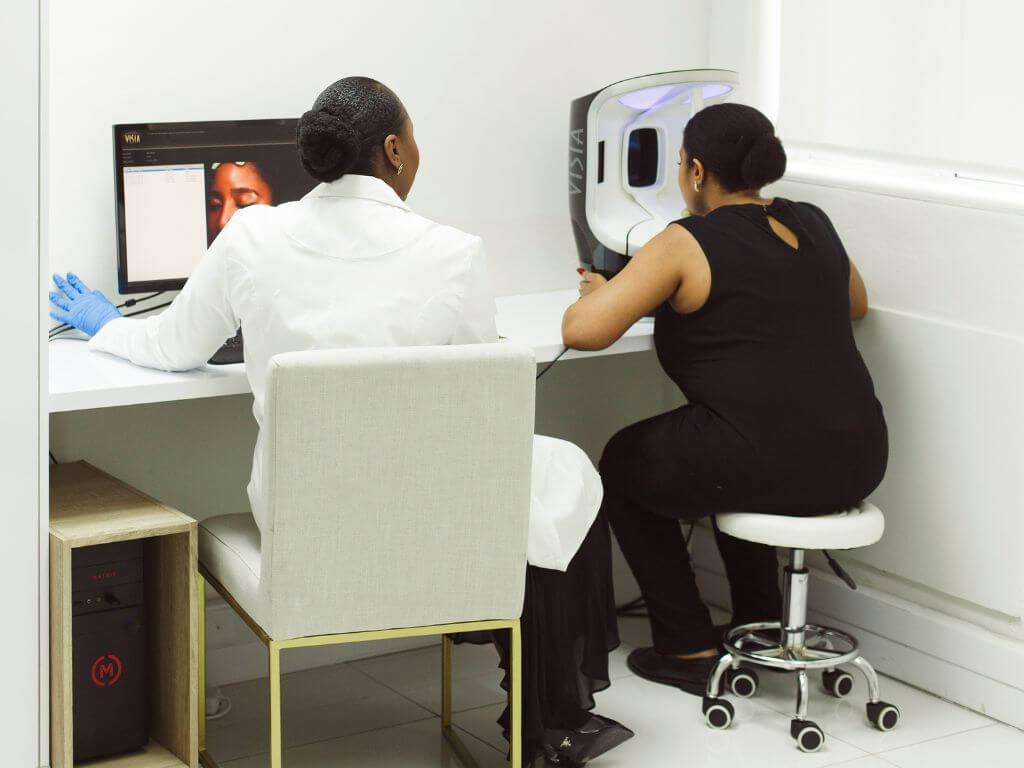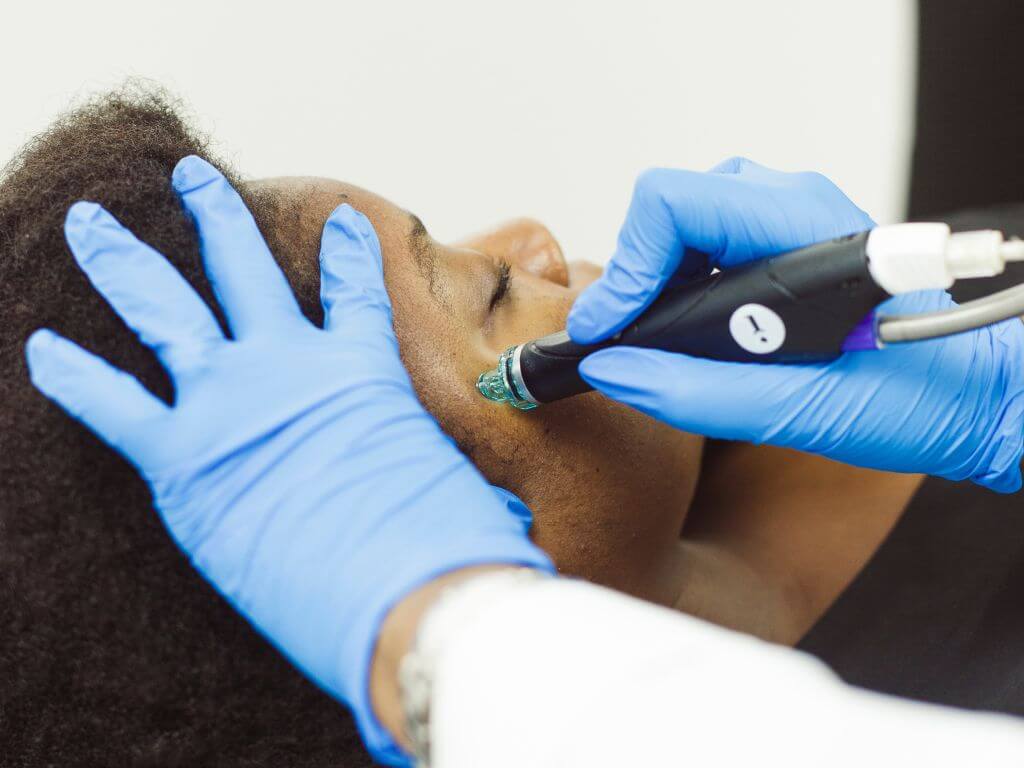Menopause is a natural transition, but the changes it brings to your skin can feel sudden and unsettling. Many women notice their skin becoming thinner, drier, or less resilient than before. The main reason is the decline in estrogen. This hormone plays a central role in maintaining skin structure, collagen, moisture, and healing. When levels fall, the skin undergoes visible changes. The good news is that with the right understanding and treatments, menopause skin changes can be managed effectively.

How estrogen impacts skin health
Estrogen is more than a reproductive hormone. It influences many of the systems that keep skin youthful and strong:
- Collagen and elastin support: Estrogen stimulates the production of collagen and elastin, the proteins that keep skin firm, plump, and resilient.
- Moisture retention: It boosts natural hyaluronic acid and ceramide levels, which help lock in hydration and maintain the skin barrier.
- Skin thickness: Estrogen maintains the structural layers of the skin, keeping it less prone to tearing or bruising.
- Blood circulation: It increases blood flow to the skin, ensuring oxygen and nutrients reach the cells.
- Healing: Estrogen supports faster recovery from cuts, scrapes, or irritation.

What happens to the skin after menopause
When estrogen levels drop after menopause, skin loses many of these natural supports:
- Thinning of the skin: Reduced collagen and elastin make the skin weaker and more fragile.
Dryness and itching: Lower oil and hyaluronic acid production reduce the skin’s ability to stay hydrated. - Wrinkles and sagging: Fine lines become deeper as elasticity declines.
- Delayed healing: Skin takes longer to recover from irritation or inflammation.
- Increased sensitivity: Women may find that products used comfortably before menopause now cause stinging or redness.

Estrogen-Deficient Skin (EDS)
Doctors use the term “Estrogen-Deficient Skin” to describe the specific changes that occur after menopause. Research shows that up to 30% of skin collagen can be lost in the first five years after menopause. This leads to:
- Noticeable dryness and rough texture
- Fragility and easy tearing
- More pronounced fine lines and wrinkles
- A tired, less radiant appearance
EDS is not just about appearance. The loss of estrogen impacts the skin’s role as a protective barrier, which can increase vulnerability to irritation, sun damage, and infection.
Menopause skin changes in African skin
African skin responds differently to menopause compared to lighter skin tones. Melanin offers natural protection against UV damage, which often delays the appearance of wrinkles. However, after menopause, African women may face specific challenges:
- Pigmentation concerns: Dark spots, uneven tone, and post-inflammatory hyperpigmentation become more noticeable.
- Elasticity changes: Sagging in areas like the jawline or under the eyes can become more pronounced.
- Dryness: Reduced sebum production can cause flaking and discomfort, especially in drier climates.
- Scarring and healing: Cuts, acne, or rashes may take longer to heal and are more likely to leave marks.
Understanding these differences is important because one treatment plan cannot work equally well across all skin types.

Collagen loss explained
Collagen is the scaffolding of the skin. With estrogen decline, collagen production slows dramatically. This results in:
- A loss of firmness, making skin sag more easily
- Deeper lines forming around the mouth, eyes, and forehead
- Weaker support for blood vessels, which can lead to dullness
- Reduced strength in the skin barrier, leaving it more sensitive to irritation
Targeting collagen loss is one of the most effective ways to address menopause skin changes.
Our anti-ageing approach: Prevent, restore, protect, deliver
At Dr. Nokubonga Khoza, our approach to menopause skin changes is built around four key pillars:
Prevent
Stop further damage by strengthening and protecting the skin.
- Daily broad-spectrum sunscreen use to slow down collagen breakdown
- Medical-grade skincare with ceramides, peptides, and antioxidants
- Nutrition guidance to support skin health from the inside out
Restore
Rebuild what has been lost.
- Chemical peels to resurface and brighten skin tone
- Microneedling (Dermapen) to stimulate collagen and elastin production
- Derma-planning to smooth texture and support product absorption
Protect
Maintain skin integrity and resilience.
- Platelet Rich Plasma (PRP) to boost regeneration and healing
- Complexion blending treatments to even tone and reduce pigmentation
Deliver
Replenish hydration, elasticity, and volume.
- Wrinkle and fine line relaxation treatments for smoother skin
- Dermal fillers and skin boosters to restore firmness and radiance

Every woman experiences menopause skin changes differently, and there is no one-size-fits-all solution. That is why we take the time to understand your skin type, your health background, and your personal goals. From restoring collagen to protecting your skin barrier, our evidence-based treatments are designed to help you age with confidence and comfort. Let us partner with you on this journey. Schedule your appointment today and discover the power of personalised care.
